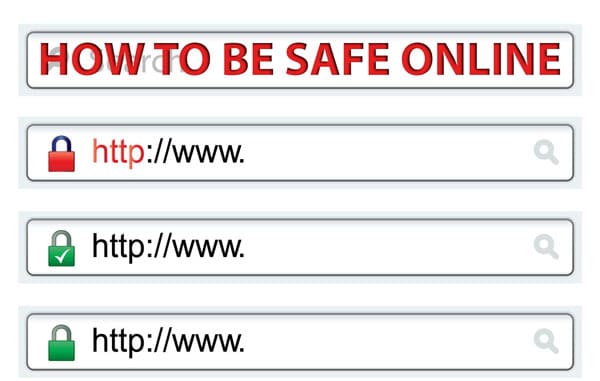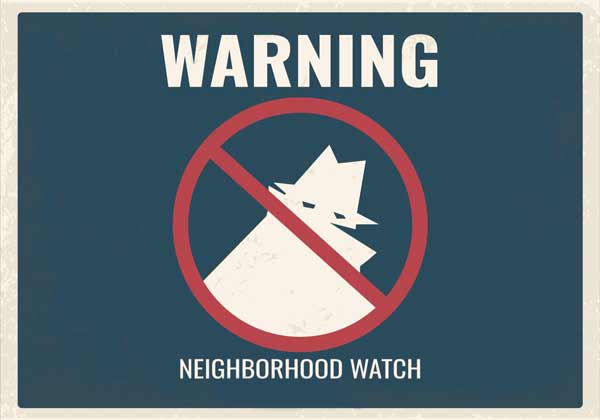Table of Contents
The 200 gigabytes of data Sony Pictures lost to hackers in 2014 cost Amy Pascal her co-chairmanship in the company. The devastating cyber-attack leaked Pascal’s emails from the company’s servers onto the Internet where she had criticized stars like Angelina Jolie and acrimoniously made fun of President Obama. Her private emails caused her a major public embarrassment.
Now, HBO has lost 1.5 terabytes of data to the hackers which is said to be related to the leak of the script of the upcoming ‘Game of Thrones’ episode. The hackers managed ‘multiple points of entry’ showing a high level of sophistication and the FBI has been brought in to investigate the matter.
Here are few tips and rules that you must follow and will help you to understand how to be safe online!
Holiday Warnings
Festivals, holidays, and wedding seasons make for the biggest shopping seasons for e-commerce websites. There are days like Black Friday (the day after the Thanksgiving Day) and Cyber Monday (the Monday after the Thanksgiving Day) which marketing companies specifically target to persuade people to indulge in online shopping. You should know how to be safe online during festive season.
An IT Management assignment help expert shared, “I recently wrote an assignment on e-commerce spam, and during my research, I realised how easy it is to get fooled by the sites that seem totally authentic.” He offered a few tips on how to be safe online and make sure that the ‘best deals’ you’ve found online are not ‘traps’ to trick you into accidentally revealing information hackers want:
- Best Deals: Never get lured into viewing or accessing websites you’ve never heard of. Stick with the reputable names like Amazon, Walmart, and Best Buy.
If it looks ‘unbelievable’, it is probably best not to believe it.
- Phishing: Fake websites, which look almost like legitimate ones, mean to steal your online account details and use it to steal your money.
Look closely at the company name and logo before you input anything on a website. Also, keep your eyes peeled for the emails that seem like spams. Thankfully, Gmail cast suspicious emails directly into the ‘Spam’ folder. Click on the emails only if you know the sender. Missing out deals is much better than losing your sensitive information.
- Rush Mines: Sites that urge you to pay ‘now’ or ‘immediately’ to get a deal or to help someone sorely in need are almost always traps for those who are kind and sensitive. Most of the time, the items never get delivered to you because that was never the business model of these sites.
You also need to be wary of emails you receive when you lose auctions. Hackers keep an eye on users who ‘miss’ deals and lure them away from secure buying environments. Bad grammar is another tell-tale sign of an e-commerce website that is not planning to stay in the market for long. So, move away from it as soon as possible.
- Social Engineering: Here, you are tricked into sharing the password or OTP or last four digits of your social security number or any other information that makes it possible for the hackers to bite into your emails, mobiles, bank accounts etc.
The request may be smooth and innocuous but anytime you are asked to share something, be aware and alert about why it is needed and whether it would be wise to trust someone with it.
The IoT (Internet of Things) Threats
The inter-connectivity of all the smart devices can certainly make your life easy but it can be a security nightmare for companies that have a BYOD (Bring Your Own Device) policy. Hackers can target any of the devices (that are not properly secured) connected to your corporate network and slip malicious programs into your system or steal data from it.
To protect your data online in the IoT-connected world, it is crucial to be aware of the vulnerabilities of your devices. Back in 2014, white-hat hackers showed how easy it is to find someone’s Wi-Fi password from the IoT light bulbs which can put all other devices connected to the network at risk.
IoT wearables often store and transmit un-encrypted data that does not require a password or biometric authentication. If they are connected to your smartphone through Bluetooth or other connections that are not secure, then the chances of attack multiply several times over.
So, it is best to limit the number of devices you connect to your office network or other networks where you store your sensitive data. Even then, keep the screens of all your devices locked and use separate, strong, and unique passwords for each one of them and be safe online.
It is also advisable to use strong and unique Wi-Fi passwords, use only the secure cloud-based apps and services, keep the firmware of your IoT devices updated, and avoid the Universal Plug and Play options.
How to Get Rid of Creepy Cyberstalkers?
If you are wondering how to be safe online from Cyberstalking then here are few tips to help you with. Cyberstalking can be as bad as or as worse as ‘physical’ stalking someone. A cyberstalker can spy on you, monitor your computer and Internet use, steal your identity and make false posts on various websites and social media channels, or use your mobile phone and email to do whatever they want. They can threaten you or even harm you in real life.
80% of the victims of these online predators are females.
Now, these cyberstalkers can be strangers as well as former or current boyfriends or husbands, spurned lovers, or other abusers who might be living at or near the victim’s home. They seek to intimidate and control the victims and can harass them in several different ways.
Some of the tips to throw someone off your scent online are:
- Be careful with what you are sharing on your email or social networking sites. Your posts and pictures can easily reveal where you live and which places you visit.
- Register on different social networking sites using a new email ID every time. In fact, it might be in your best interest to not use your personal email ID for this purpose.
- Avoid filling all the fields in your social media profiles, especially your birth date or the city you live in. Even if you do, make sure that the privacy settings to view such information is to ‘Only Me’.
- While sharing photos online, avoid sharing the ones clicked at your home, school, college, or workplace.
- Use an alias as your user ID, email ID, or screen name. Pick a name that is gender and age neutral and treat the passwords of your email and social network accounts with the same reverence as you do to your credit card passwords or social security number. Never share them with others.
- If your spouse or boyfriend or abuser knows your passwords, change all of them and make sure that the new password is the one that they can never guess.
If you still fall into the clutches of an online stalker, save all the communication you have with them. Record all their calls, save all their emails (and print them out), and take print screens of any text messages they send you. Maintain offline records that you can use as evidence against them. Also, share with us some tips that you use to be safe online by commenting below and let others know.













